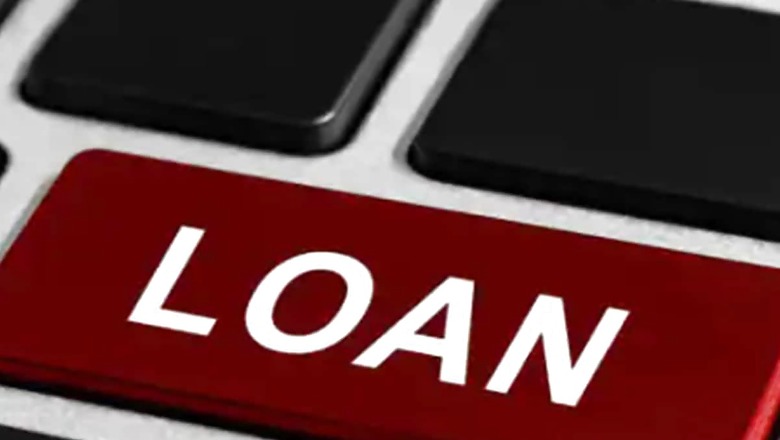
views
Do you have a history of borrowing money from NBFCs and banks? If so, this helpful article will assist you in repaying your loan on time and preventing complications associated with loan default. Allow me to paint for you a picture of how to keep yourself away from defaulting on your loans. Debt traps, also known as loan defaults, are a highly prevalent occurrence in the modern world. Many people on the shore were having trouble managing their finances as COVID 19 had a negative impact. It was clear how significant a loan had become because it played a significant role in everyone’s life.
Loans and immediate cash are still the gateway to heaven, but little did they know that, if ignored, they would also serve as a persistent reminder of the astronomical additional fees and calls from collection agencies that await them there.
What are defaults on loans?
People are beginning to understand how crucial it is to repay debts obtained through banks, NBFCs, or online lenders. The borrower bears the major responsibility for timely loan repayment. Defaulting on a debt can result from failure or neglect to make payments. Many borrowers fail to make their payments on time and are considered loan defaulters.
Unbeknownst to many, leaving something off even one list can have an adverse effect on your credit report and even lower your credit score.
What occurs if the loan is not repaid?
Depending on how credit bureaus obtain your credit reports, how well you repay loans is a sign of your credit health. For instance, it would be deemed a late payment if you paid a payback that was due but wasn’t made on time.
Your credit reports will be seriously impacted if you miss 30 to 60 days of loan payments. When you miss payments on a personal loan for more than 90 days, it becomes a problem. Your CIBIL score could suffer a major hit as a result. You will start getting calls from the recovery agents of the third-party agent if you take a long time to pay back your personal loan.
What leads to a loan defaulting?
The majority of people believe that a loan default only happens when the borrower doesn’t make their loan payments. While some of it may be accurate, there is still another element that may play a major role in your loan default. Here are the specifics:
Financial instability is a common sort of loan default that many people encounter, where the borrower neglects to make interest or principal- principal payments on the loan.
Loan defaults in India are most frequently caused by a delay in salaries, which is known as a salary receivables delay. Salary delays are fairly common, regardless of whether you work in the public or private sector. Therefore, the only alternative left to a borrower is to repay their loans.
Losing a job: Since the pandemic, this has been a typical occurrence for people. People who have lost their jobs yet still owe money on loans are the victims in this situation because the frequency of job losses has increased.
Business loss: In the world of business, nothing is definite, and nothing is predetermined. Most companies depend on business loans to run smoothly. Default will occur if there is any failure during loan repayment.
Frauds committed: It has been noted that fraud is a key contributor to loan defaults in India. It may seem banal, but some borrowers take out loans with the deliberate goal of not paying them back. Even if it is challenging to qualify for a loan, they are nonetheless able to obtain one. This is a common occurrence with large-amount unsecured commercial loans. As a result, borrowers do not offer up collateral equal to the amount they borrowed.
Here are some strategies to prevent loan defaults:
Recognize your payment dates: It’s critical that everyone realises that EMI payments must be made on time. It is made simpler when you receive notifications regarding the payment on your mobile device. However, it’s crucial to be aware of your dates in order to make sure your account has enough money. This will help you stay informed about your output.
Keep a suitable amount in your account to prevent loan default. Your account should always have a sufficient balance. You run the risk of defaulting if you don’t pay it by the deadline.
Speak with your lender.
It is important to speak with your lender or the banks based on loan defaulting if you believe you will most likely forget to pay your EMI for the upcoming month. Speaking is preferable to sitting and imagining how it will affect you.
Debt rescheduling – If you feel that the size of your monthly payments is making you anxious, speak with a debt counsellor and arrange for a longer repayment period.
The easiest option to pay off missed debts is to refinance your loan. This approach is simple to use if you have fallen behind on your payments because it involves borrowing money from a different lender and using that money to pay off the previous debt. The only problem will arise when you need money to repay your upcoming debt in the future.
What should you do if your loan is in default?
If you are having problems paying back your obligations, the very last thing you want to do is stop making the payments on your existing bills. If you believe that you will be unable to pay your EMIs, there is always a way out of debt that you can pursue. Find a company that specialises in debt solution and can provide you with stress-free management of your obligations.
-The author is founder, SingleDebt. Views expressed are personal.
Read all the Latest Business News, Tax News and Stock Market Updates here




















Comments
0 comment